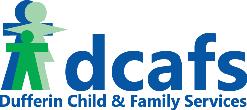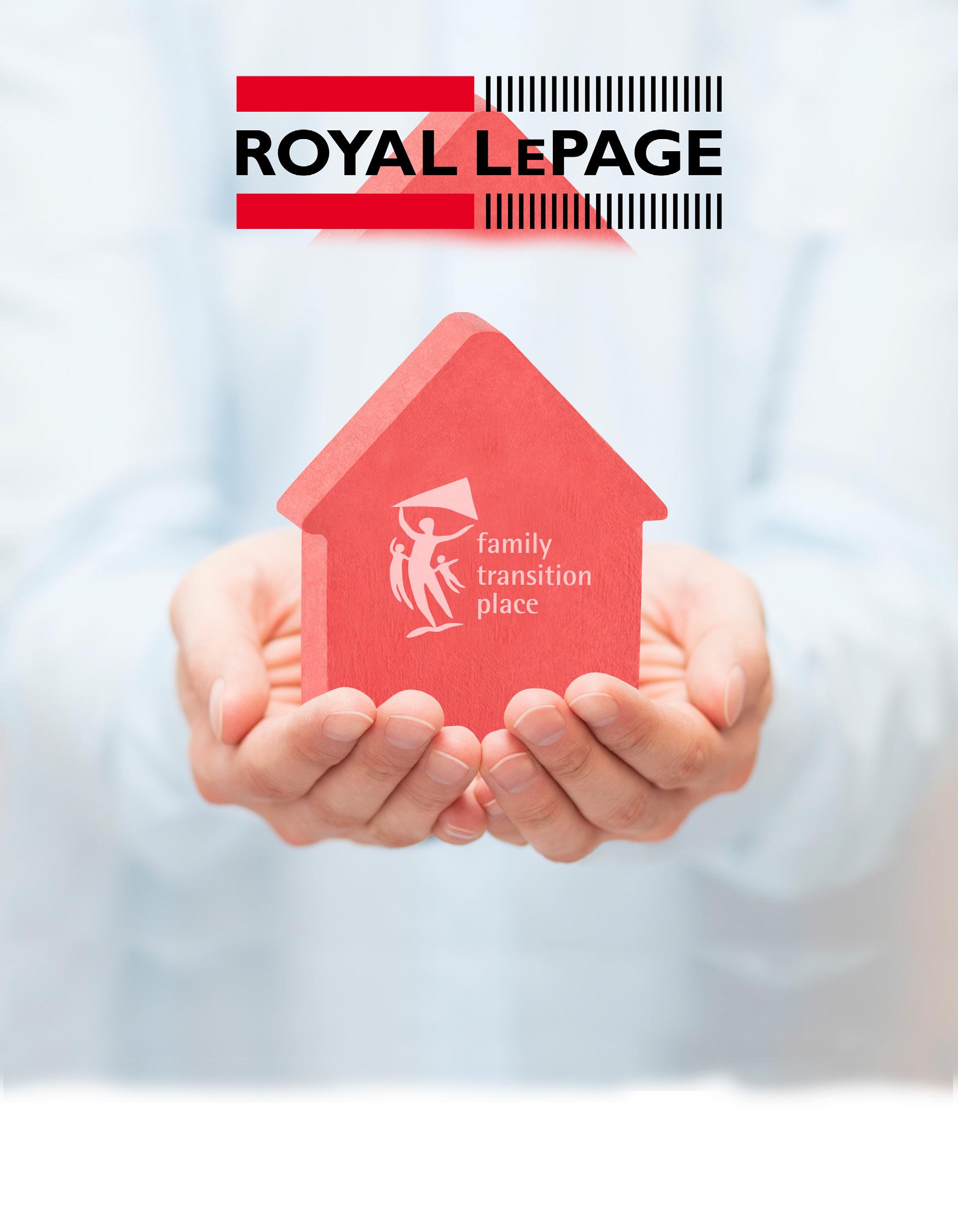a publication of family transition place
March 2023


a publication of family transition place
March 2023





At the heart of every community, you’ll find organizations fueled by committed people who are passionate about building a better future for us all. We are inspired by our friends at Family Transition Place and their continuous efforts to build healthier communities –one relationship at a time.





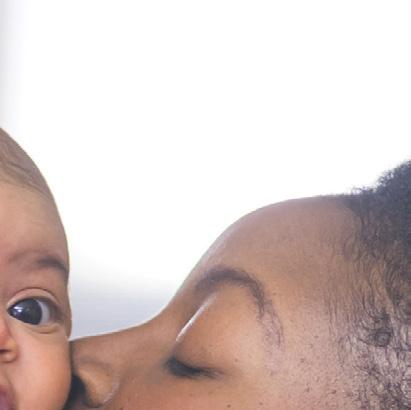

rbc.com/community

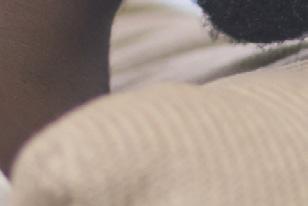

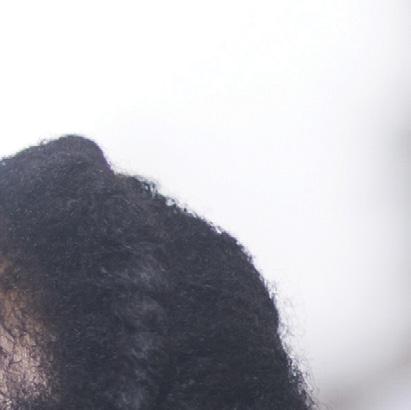

way to support a community is to be a part of it.
March 2023
Embracing equity
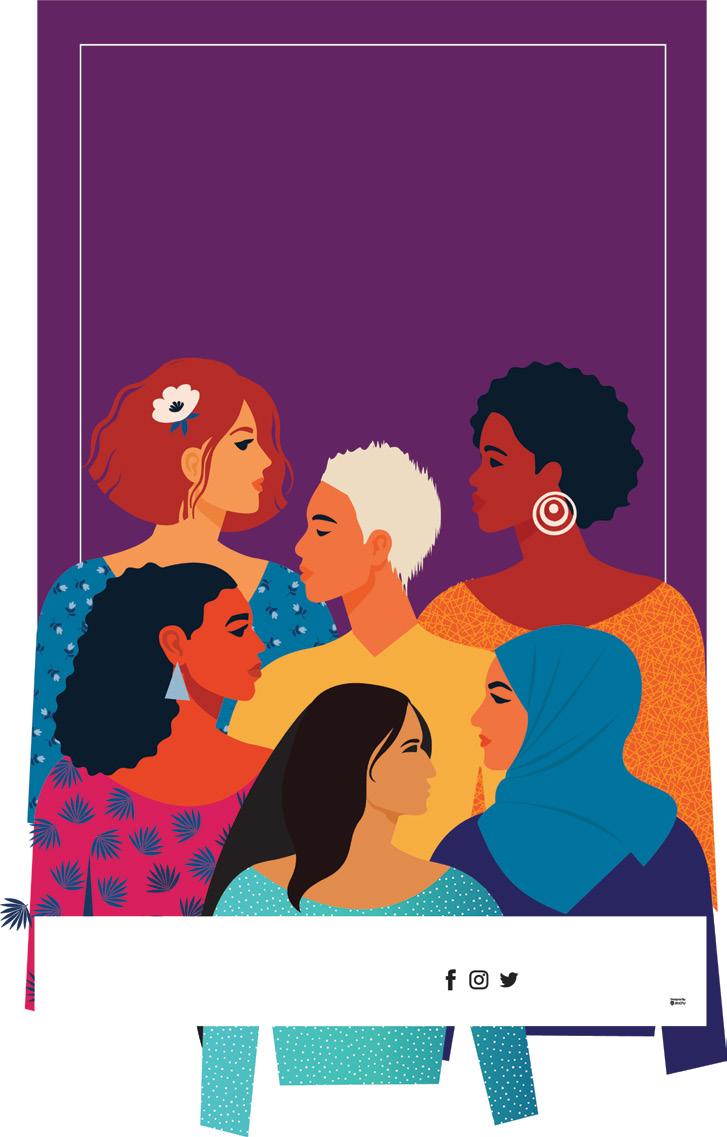
Norah Kennedy
Finding inspiration in advocacy
Tabitha Wells
Waiting and the call
Kimberly Van Ryn
Perspective
Tony Maxwell
Alethia O’Hara-Stephenson
EDITOR IN CHIEF: Kelly Lee
ART DIRECTOR: Liesje Doldersum
CONTRIBUTORS: Norah Kennedy, Tony Maxwell, Alethia O’Hara-Stephenson, Brennan Solecky, Kimberly Van Ryn, Tabitha Wells
PHOTOGRAPHY: as credited / stock / submitted photos

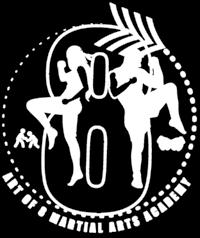
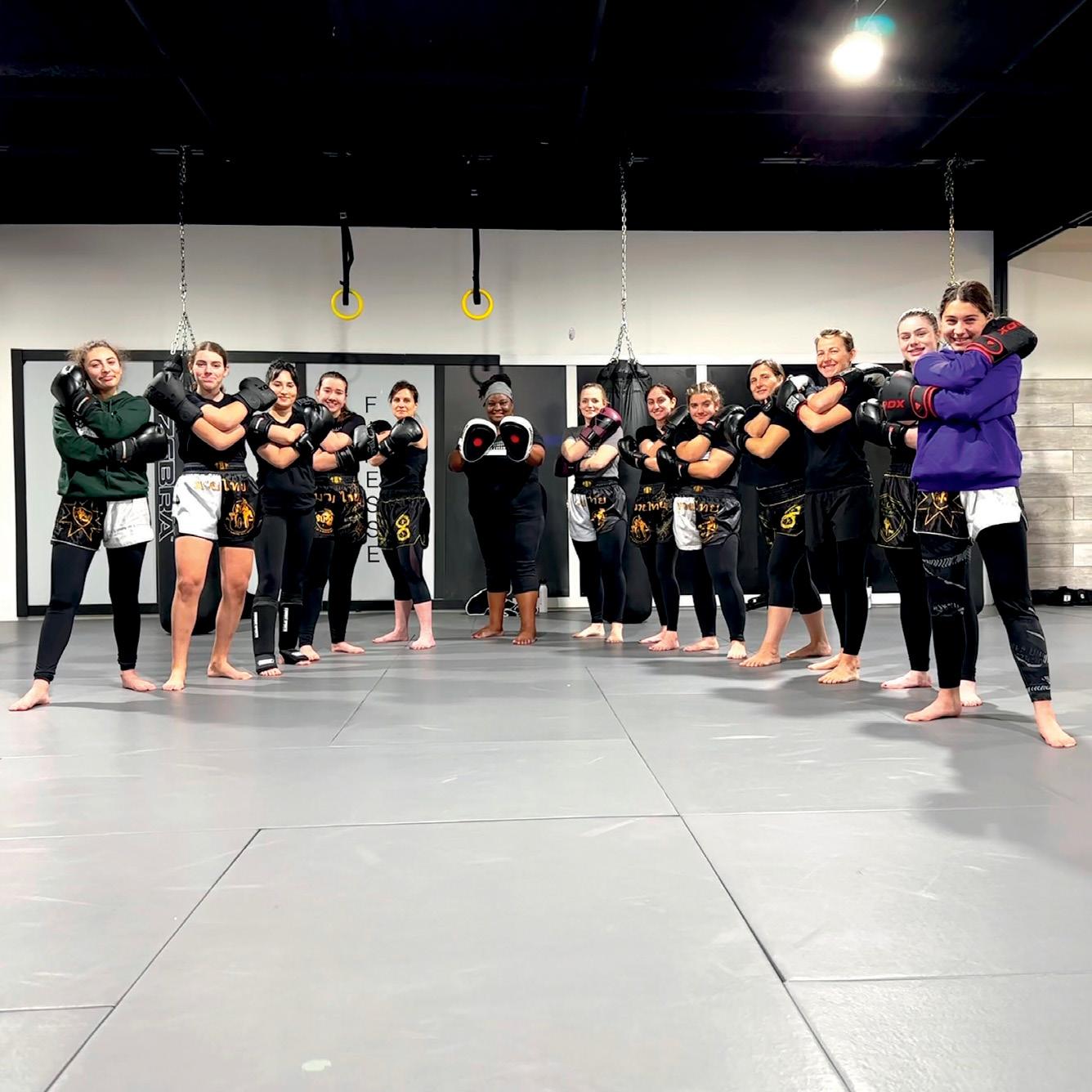

ARTOF8.COM/WOMEN


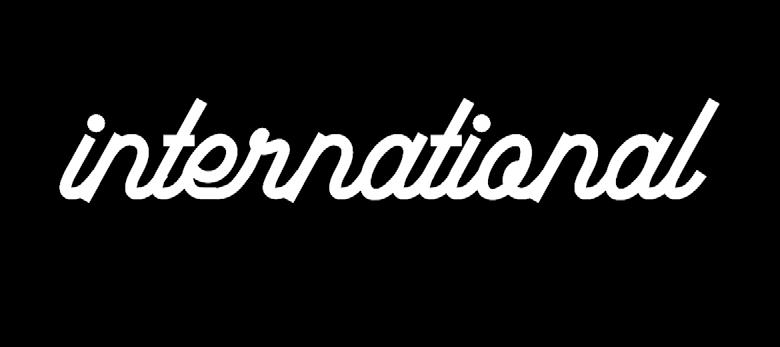
519-941-7275
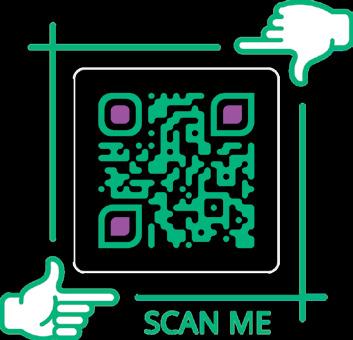
“Equity isn’t just a nice-to-have, it’s a must-have.”1
The theme for International Women’s Day (IWD) 2023 is “Embrace Equity.” The timing for digging into this couldn’t be better, as Family Transition Place (FTP) endeavours to understand what “equity” truly means and what we need to do to understand and embrace it fully.
At FTP, we have an understanding of the role gender in-equity plays in violence against women. We see it etched into the faces of the women who show up at our door. We recognize it in the long-standing cultural norms that are embedded in the fabric of our society and in the DNA of those who hold power and control. We see it in the women’s eyes, as they slowly start to recognize the outcome of that inequity, what the power imbalance has meant to them and their children, and the many ways it has disadvantaged them.
We see it in a relationship where they were the ones who experienced abuse, coercion, and violence, they were the ones who had to leave their homes and seek refuge in a shelter. The balance of power still tilts heavily in favour of the abuser (from a gendered lens, usually a man) who remains in the family home, keeping his job and his lifestyle intact.
A very real example that there is much work left to achieve gender equity has come out of the past three pandemic years: “The impact of the [COVID]-19 pandemic threatens to reverse decades of progress made towards gender equality, according to a global study that reveals women have been hit much harder socially and economically than men.2
“Women were particularly affected by loss of income and education, rises
in domestic violence, child marriage and trafficking, and responsibility for caring for children and sick relatives, according to a comprehensive report published by the International Federation of Red Cross and Red Crescent Societies (IFRC) on Monday. ‘In a crisis, it is always women who pay the highest price,’ said Francesco Rocca, president of the IFRC.”3
The health care and not-for-profit sectors are, by a large margin, predominantly staffed by women. Over 75% of all paid employees are female. When COVID-19 hit, these were the people on the front lines of response. While many were sent home and the world entered into what became known as the “Great Pause,” those working in health care, mental health, violence against women and other human services suddenly found themselves designated as “essential.” There was very little time to understand what was now required of them, to prepare for the many changes in how they were to perform their roles, or how to do it while caring for themselves and their families.
Meanwhile, the needs of the vulnerable populations they served escalated and demands on their time and expertise skyrocketed.
“During the pandemic, the role of caregiver exposed women to an increased risk of contracting COVID-19. Comprising the vast majority of healthcare workers, women were on the front line caring for patients and accounted for 72% of all COVID-19 cases among healthcare professionals in the region. “If they had been better protected from the start and with reasonable shifts, many infections could have been avoided...”4
“The physical and emotional costs of working long shifts in hospitals
Family Transition Place (FTP) has been committed to helping women and children in Dufferin and Caledon since 1985. In times of crisis, women have found their way through our doors and into safety, often with their children in hand, and here they start the arduous work of re-building their lives. In our welcoming and cheerful shelter, they meet other women whose professional lives are dedicated to helping them overcome their challenges and build new relationships—at the centre of which is the relationship with themselves and their children.
Apart from the shelter services and our critical clinical counselling services that support women with the trauma of the abuse, and both women and men who are dealing with the aftermath of sexual assault, FTP has become known as a leader in the field of healthy relationship education. We believe that by educating youth and children about the importance of respect, self-esteem and nonaggressive behaviours, we can influence the next generation of families, so that they are emotionally healthy and strong

and the worry about COVID-19 exposure followed many female healthcare workers home, where they were often also responsible for 80% of chores. The study points to several research studies that have shown that women working in healthcare are more likely to suffer from anxiety and depression, insomnia or burnout than their male counterparts. “During periods of lockdown to curb the spread of the virus, women also spent more time at home, a place which was unsafe for many. Calls to domestic violence hotlines shot up by 40% in some countries during these periods. In others, they dropped dramatically, indicating that women could have faced new barriers to seeking help.”5
The statistic above was borne out locally, where initially, after the first lockdown, calls to the crisis line at FTP dropped significantly and then proceeded to increase rapidly. Today, calls to the crisis line are 50% higher on average than they were pre-pandemic.
It is interesting to speculate on why so many women are employed in the care-taking and human-services fields. Not-for-profit jobs and many caretaking positions are notorious for being lower paid. But even within the sector, pay equity is still to be accomplished.
“The wage gap between men and women working in the non-profit sector has improved but remains unsettlingly high. Men earn on average more than $6 an hour than their female colleagues, and that difference jumps to $8 an hour for non-profits serving governments—like the community social services sector, for instance. Wages for Indigenous employees increased 14.9 [%] over the past decade, compared with an 18 [%] increase for non-Indigenous employees.”6

Obviously, even in work that is fundamentally about equity, there is much to be done.
We have made advances. The very fact that so many organizations, large and small, are attempting to embed
values of Diversity, Equity and Inclusion (DEI) into their organizational culture is testament to that. This is difficult work, or as Annemarie Schroeder, the DEI consultant and trainer who is working with FTP on this project calls it, “slippery” work. The norms and values upon which our systems and processes are founded, are very firmly set and most of this work feels like minute chipping away at the edges rather than destroying those foundations.
In an organization like FTP, where we are almost completely a female-identifying work force, perhaps we don’t experience gender equity in the same way as some other organizations. However, equity (or inequity) has many faces.
The challenge for any organization is to recognize how inequity is manifesting in that particular workplace.
Most of us will find that assumptions and biases that lead to inequities were built in to the foundational principles of our organizations. Systems, large and small, are heavily skewed because of the unconscious (or conscious) bias of the time when originating documents and practices were put in place, by the dominant power (i.e., men). This exists even in organizations like FTP where, right from the beginning, our work was all about gender and power imbalance.
In most corporations or organizations, founding documents had to be created and reviewed through the legal systems’ lens, Robert’s Rules of Order were the norm for board governance and hierarchical leadership and staffing structures were all based on maledesigned organizational models.
The systems within which we work: government funding and reporting, and external systems we need to work with: police and justice systems, were all originally designed by and for those who worked inside those systems (i.e., men).
(Do you remember the story of the lone female MP in Ottawa who missed an important vote in the house because she couldn’t find a women’s bathroom?)
We also know, that if gender inequity exists, (and it does) that it is significantly greater for women of colour, those who identify as Black, Indigenous, or gender non-conforming.
“There is also a disconnect between companies’ growing commitment to racial equity and the lack of improvement we see in the day-to-day experiences of women of color. Women of color face similar types and relative frequencies of microaggressions as they did two years ago—and they remain far more likely than white women to be on the receiving end of disrespectful and “othering” behavior. And while more white employees see themselves as allies to women of color,
they are no more likely than last year to speak out against discrimination, mentor or sponsor women of color, or take other actions to advocate for them.”7
However, the new focus on DEI in the workplace means we can feel hopeful that, despite the many challenges that remain, this work has driven some advances in awareness and a move towards greater equity: “…This year, for the first time, women of color were promoted to manager at about the same rate as women overall: 85 women of color were promoted for every 100 men. (*86 women for every 100 in non Black, Indigenous and People of Colour populations.) This is important progress, and it will be critical that companies build on it to make promotion rates truly equitable.” 8
It is always encouraging to see gains, even when they are small. It is part of the “chipping away” process, those incremental advances that give us hope that real change can come. It is not the crumbling of the foundation, or the laying of the new one, that we have long known needs to happen. But perhaps if we can be strategic about where we place the chisel while we chip
away at the edges, we can find the places where the foundation can begin to be rebuilt (to carry the analogy even farther).
The IWD theme is asking us each to stand and demonstrate our commitment to “Embracing Equity” by posing while giving ourselves a big self-hug. I think it is appropriate that embracing ourselves is the symbol to demonstrate our commitment to equity. Until we deeply understand how the beliefs and assumptions that were baked into our subconscious as very young people have created long standing inequities, we will never know what equity really is or what it can be.
“It’s what we believe in, unconditionally. Equity means creating an inclusive world.”9
1 “International Women’s Day 2023 Campaign Theme: #EmbraceEquity.” International Women’s Day, www.internationalwomensday. com/2023Theme. Accessed 21 Feb. 2023.

2 Gregory, Andrew. “Covid Has Intensified Gender Inequalities, Global Study Finds.” The Guardian, 22 Mar. 2022, www.theguardian.com/ world/2022/mar/02/covid-intensified-existing-gender-inequalities-global-study-finds. Accessed 21 Feb. 2023.
3 McDonald, Jessie. “Women Bore Brunt of Social and Economic Impacts of Covid – Red Cross.” The Guardian, 19 Oct. 2022, www.theguardian.com/global-development/2021/nov/22/women-bore-brunt-of-social-and-economic-impacts-of-covid-red-cross. Accessed 21 Feb. 2023.
4 Pan American Health Organization. Gendered Health Analysis: COVID-19 in the Americas. 22 Dec. 2021, iris.paho.org/handle/10665.2/55432. Accessed 21 Feb. 2023.
5 Pan American Health Organization. Gendered Health Analysis: COVID-19 in the Americas. 22 Dec. 2021, iris.paho.org/handle/10665.2/55432. Accessed 21 Feb. 2023.
6 Paterson, Jody. “StatsCan: Face of Non-profit Sector Is Well-educated, Female, Aging and Unequally Paid - Board Voice.” Board Voice - Leadership. Collaboration. Community., 5 May 2021, boardvoice.ca/2021/05/04/statscan-face-of-non-profit-sector-is-well-educatedfemale-aging-and-unequally-paid. Accessed 21 Feb. 2023.
7 McKinsey & Company and LeanIn.Org. Women in the Workplace 2021. 27 Sept. 2021, womenintheworkplace.com/2021 . Accessed 21 Feb. 2023.
8 Gregory, Andrew. “Covid Has Intensified Gender Inequalities, Global Study Finds.” The Guardian, 22 Mar. 2022, www.theguardian.com/ world/2022/mar/02/covid-intensified-existing-gender-inequalities-global-study-finds. Accessed 21 Feb. 2023.
9 “International Women’s Day 2023 Campaign Theme: #EmbraceEquity.” International Women’s Day, www.internationalwomensday. com/2023Theme. Accessed 21 Feb. 2023.
FTP then...
A major component that makes a house a home is the ability to feel safe there. It was something Linda Murphy found to be prominent amongst her clients through her career as a realtor. It’s also a profound piece Linda sees through her advocacy for victims of domestic violence.
That advocacy came from a journey that changed the trajectory of her life at the time.
“We have to do this to help, to be the strength for those victims in the middle of this because they are too traumatized, too upset to have to find their way through this on their own,” explained Linda. “I want to be able to say to them ‘you don’t need to worry about shelter, about food, just go to bed, get rest, because there is support for you’.”
Linda’s advocacy story began when she set out to hike the Pacific Crest Trail at the age of 57, she knew it was going to change her, but could never have accounted for just how profound the impact on her life would be.

The hike, which could more accurately be called an epic quest, did more than create change for Linda personally; it led her to a deeper understanding of the very cause she dedicated her hike to.
“One night about five years ago, I was looking for one random movie to watch,” shared Linda. “I saw the movie banner of a woman with a backpack. I clicked on it, and we watched the movie Wild.”
For those unfamiliar with the movie, which stars Reese Witherspoon, it’s the Hollywood dramatization of the story of Cheryl Strayed’s hike of the Pacific Crest Trail in 1984.
“I could feel all the bells and whistles going off, and I turned to my husband and said ‘I’m going to do that one day’,” she explained. “The next year came and a good friend of mine passed away. I had that ‘life is short’ epiphany, the one so many people have. I was struck with it profoundly and I thought, if I want to do this, I better do it now, because we don’t know what tomorrow will bring.”
Linda took six months off from her job and left in March of 2019. She had decided to do the hike as a charitable event, and as a Royal LePage realtor, was able to connect with them for their charity, the Royal LePage Shelter Foundation. The foundation is dedicated to funding women’s shelters and violence prevention programs.
The hike raised over $30,000 for women’s shelters in Canada.
Tabitha WellsWhile raising so much money was powerful, it was what happened during her time on the Pacific Crest Trail put a new drive for advocacy into her heart.
“I was alone for 45 days before I made a friend,” Linda said. “My mind started abusing me. You go down a deep, dark rabbit hole when you’re in isolation.”
She shared that it’s been described to her how those who are victims of domestic violence feel very isolated, even when they might not be physically alone. In one instance, she knew a woman who ended up in a shelter because the violence carried out by her partner had modeled the way for her children to treat her that way too.
“That’s real isolation,” Linda added. “What I experienced was different, and I wasn’t ejected into it. I felt the impact of isolation accidentally, and I don’t know if I would have gone if I knew how bad it would be.”
She walked away with one glaring realization: we are not meant to be alone.
“We are meant to be together, to help each other, nurture each other, encourage each other,” said Linda.
The changes she experienced on her journey left her both wanting to hike more and help more, and Linda quickly realized she was no longer finding the
same fulfillment in her job she once had.
In 2022, Linda took to the wilds again, this time hiking the entire 900km of the Bruce Trail over 45 days to raise money for victims of domestic violence. With access to the internet and ways to engage supporters, she raised over $60,000, and connected with numerous survivors, community members, and shelter organizations.
The more Linda learned about the stories of domestic violence survivors and the shelters, she found herself more grateful for the life she and her daughters have.
“Our daughters have always encouraged me and said I am a role model to them, and that’s all a mother needs to hear,” she said. “Once I realized our girls were looking up to me, I realized now I have a responsibility to continue that role for them.”
Throughout her journey, she had the opportunity to get to know the staff at her local shelter in Collingwood and became more involved, going to shelter events on a regular basis and becoming personally connected.

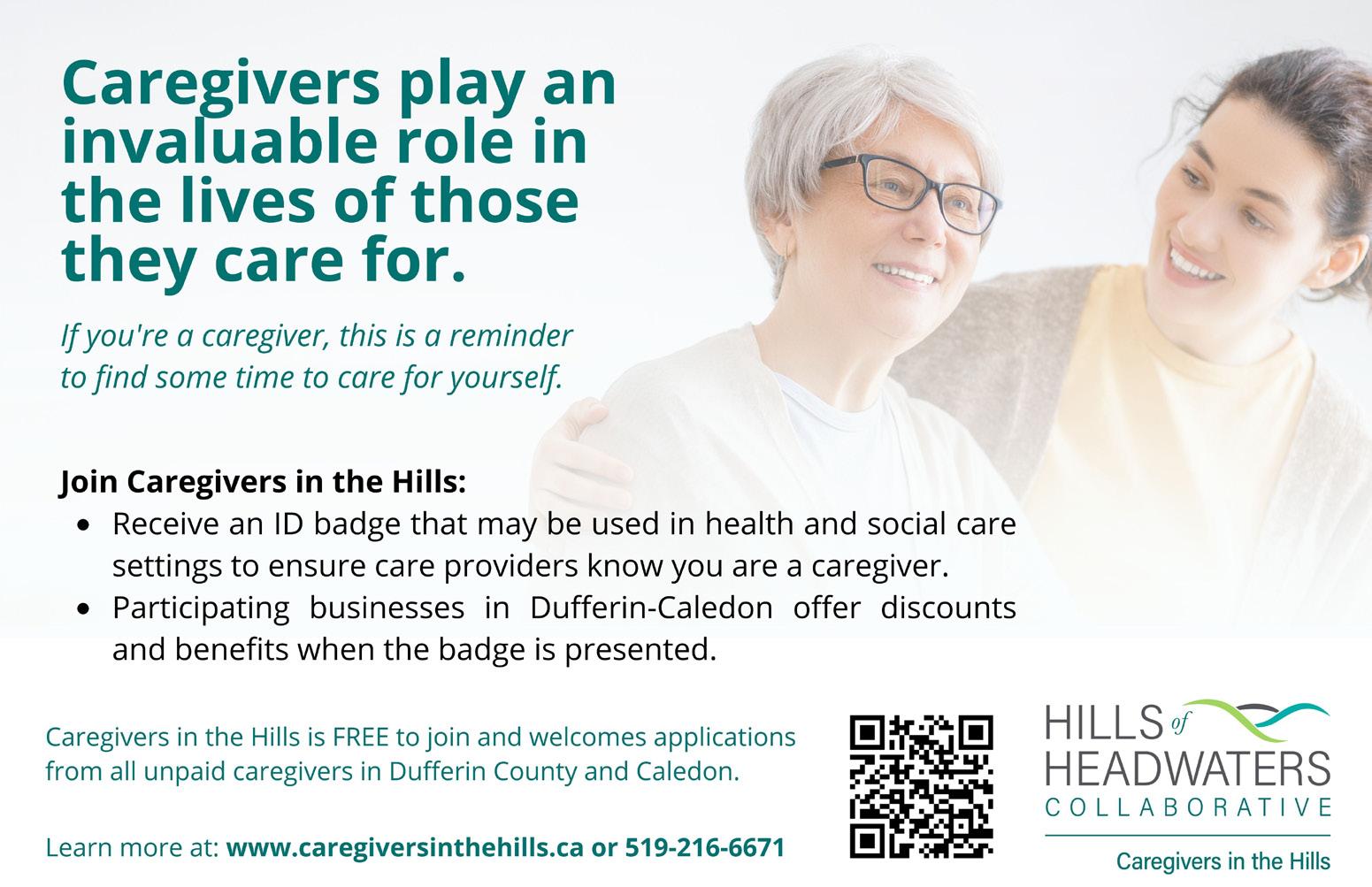
When asked how this translated to a passion for being an advocate, Linda noted part of it stems from the fact that at any point, it could happen to any of us.
“Even though we have that safe life for ourselves, what if it happens to me or my daughters one day?” she said. “Then I become part of that equation. When we step forward to help others, we are also laying the groundwork to help ourselves.”
Of course, she added, the initial motivation for advocacy doesn’t come from that selfish or self-centred aspect, but it becomes part of the cyclical effect of advocacy work.
“It’s like anything—we help ourselves when we’re kind to strangers because somebody else may see that and it inspires them to be nicer to somebody else during the day. It’s just all part of the “takes a village” principle,” she said. “I just think we’re put here to help each other.”
As for what’s next, Linda is still leading weekly hikes and connecting through her website, thehealthyhiker.ca,
but her major projects have been shelved for now due to responsibilities in her personal life. While that aspect of her life is on hold, she continues to be an advocate against domestic violence.
Tabitha Wells is a writer, wife, and mom based out of Dufferin County. A former journalist, she enjoys writing about social issues and challenging people to inspire and work towards change.Maintenance Pays. Repairs Cost.
Caledon’s #1 Auto Service Centre. Proudly serving the community since 1992.
16040 Airport Rd, Caledon East, ON • 905-584-0454
www.automotivemaintenance.ca

Clear Vision | Healthy Eyes | Latest Styles
Our mission is to offer you the best Eye Care experience you’ve ever had!
Book:caledonoptometry.com

Call: 905-860-6000
104-15955 Airport Rd Caledon East, ON L7C 1H9
Families choose our office because they want a natural approach to better health and wellness. Chiropractic, Osteopathy, Massage Therapy, Holistic Nutritionist, Acupuncture and Concussion Management info@cefamilychiro.com | 905-584-2250

www.cefamilychiro.com
Physiotherapy, massage, acupuncture and women’s pelvic health
Locations in Caledon East and Schomberg


905-584-6747
www.coresolutionsphysiotherapy.com

Healthy feet are happy feet!
Diabetic foot care, ingrown toenails, corns, warts, calluses, braces, orthotics, compression stockings, laser therapy & more...
Caledon East 905-860-1600 | Kleinburg 905-552-3668
www.footclinic.co
Store Owner: Matthew Geiser
905-584-9677
www.ontariofoodland.ca


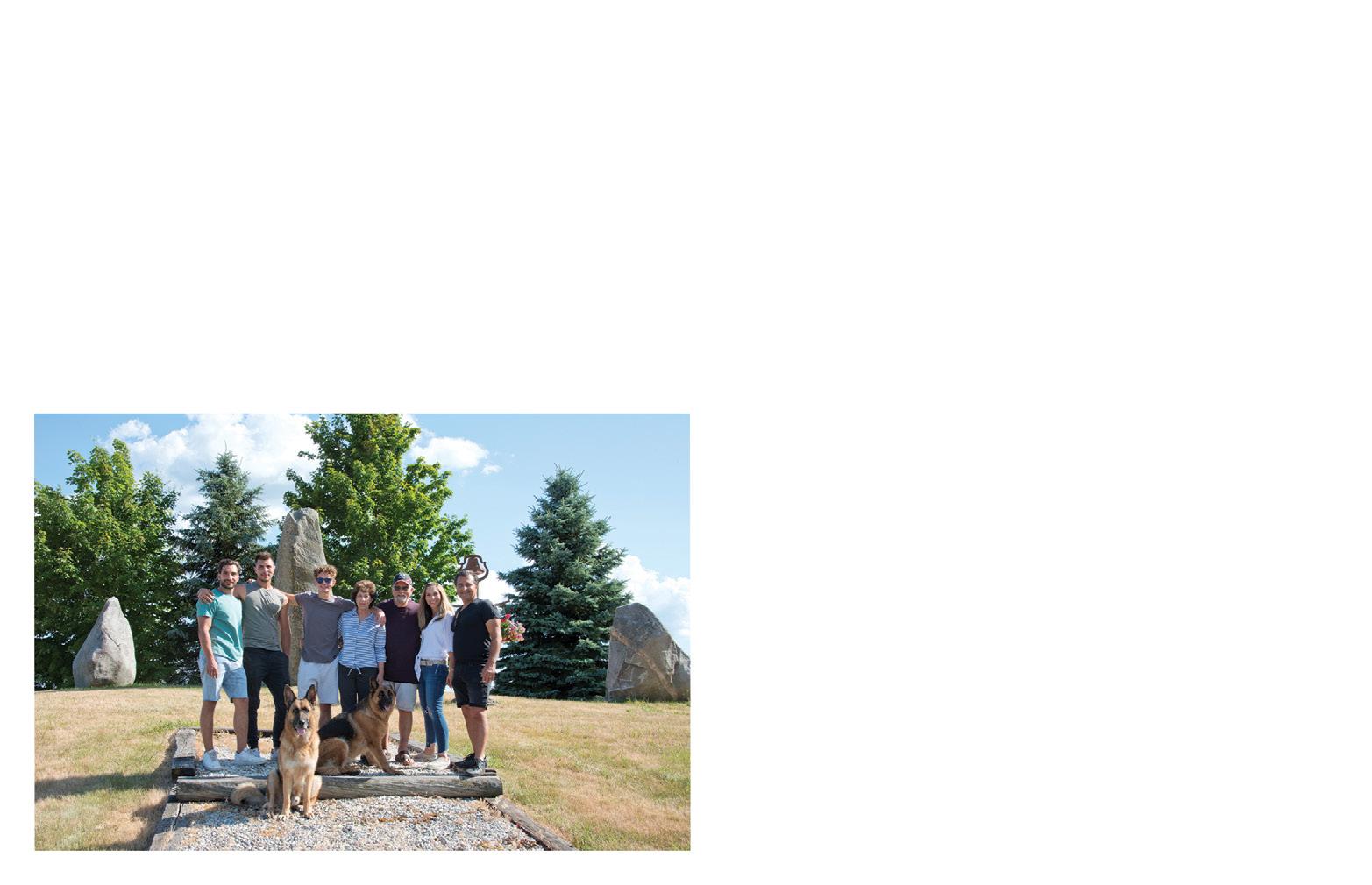

The publishing of Celebrating Women magazine alongside our International Women’s Day celebration always provides Family Transition Place (FTP) with the privilege and opportunity to reflect on the remarkable women who surround us. The women that support us, that support other women and their families, who volunteer their time and expertise—women that fiercely believe in our
mission and vision and who deeply recognize the importance of celebrating women—not just on International Women’s Day—but every day.
While there is simply no shortage of extraordinary women to honour and celebrate in this community, we are pleased to share the perspectives and experiences of a select few.
I think it’s important to celebrate women every day, honestly, but IWD gives us the moment to think of and celebrate women not just in our community but those far and wide. It evokes a sense of community that even though every woman’s journey is different, we can come together on this occasion to celebrate that journey.
Priyanka Kumar Member, Family Transition Place Governance Committee
Is there a particular woman who inspires you?
I felt very inspired by Hazel McCallion, whom I had the pleasure of meeting last year while in Ottawa. She really was an iconic political figure and her legacy will forever live on. Having served 36 years in politics as a woman in one of the largest cities in Ontario is quite a feat and through this, she provides encouragement for all women serving in politics or thinking of pursuing a career in politics.
Debbie Sherwood Councillor, Town of Orangeville

What/who are you most proud of? Why?
I am deeply grateful for and proud of all the amazing women that I have the privilege of working with. Dufferin County has a profound number of incredible women supporting this community and I am honoured to work with many of them every single day. I am also so proud of the women in my own family who have led in many different ways. Thank you all for being a guiding light in my journey!
Erin Goodyear Director, Choices Youth ShelterIf you were speaking to a group of young women, what would you want them to know?
I would like them to know that they are capable and can achieve whatever they set out to accomplish, just like their male counterparts. I would tell them to not entertain fear, intimidation, shame, nor the naysayers.
Young women should not let anyone stop them from learning or exploring unknown territories and that education is one of the most important keys to success in every endeavor. Education and reading wide will take you to places no one has never heard of, nor been to. Invest in entrepreneurship and personal empowerment through knowledge. Be confident, assertive and influence and nurture other young women to grow and excel!
Stella Adeneriba Aluze Director with the Dufferin County Canadian Black Association (DCCBA)
If you could celebrate just one woman, or group of women on International Women’s Day, who would that be? Why?
If I could support one group of women on International Women’s Day, I would choose to celebrate the women who do it all on their own. The women who show their strength and resilience by supporting those they love most, without a village around them to pitch in and lighten the load. These women carry the weight of the world on their shoulders without even a complaint. I admire and celebrate the women who find strength in less than ideal circumstances.
Amrita Baraya Owner, AB Healthy FitnessFTP extends its most sincere gratitude to these exceptional women for allowing us to share their thoughtful words and reflections. The comments on this page are excerpts from heartfelt insights provided by these women. Please visit familytransitionplace.ca to read their complete responses.

Knowing full well she will walk that fire again someday soon. The next time she is not fast enough, next time she doesn’t understand, next time the instructions move too fast and there is no visual to support the need, next time her body is filled with pain from an unknown source, next time…
I wait. With one hand on my cup and the other open in my lap, I wait.
I wait because I know this woman has had a particularly terrible day and in this moment all of her processing systems have gone dark. She is unable to find her words, so she doesn’t try. She is unable to coordinate her body to drink her tea, so she leaves it. With me there is no need for her to attempt, she knows I will wait. She huffs under her breath, venting energy from her body. I see the napkin in her hands twisting, twisting, twisting.
This is the time when it starts to get uncomfortable. What is she thinking?
Should I interrupt this silence with a prompt? Should I ask a question? I am thinking frantically to myself, “Has she actually fallen asleep?” Inwardly running scenarios and then knowing my only role here is to witness.
In my mind I draw my mentors and guides in and hear them assure me that complex communication wants time and a neurology different to mine requires curiosity. My waiting is respectful and open and it goes on a really, really long time.
And then the sobs erupt like a tidal wave on the shore, chaotic and deep. The tears come and roll and I startle when I realize some of them are indeed mine. The choked words, “I had a bad day…” garbled and barely perceptible at the end “…never good enough.”
Her truth in this moment settles heavy in the room. We sit until the tea is stone cold and we have cleaned our faces and cleared our energies. With breath, space and remembering she is able to once again access her felt sense of enough.

Through the fire she walks, just one more time.
To live in the world as a woman with a neurodiversity is an adventure of a momentous kind. A neurodiversity is a brain difference. Brain differences show up in lots of ways: at birth, from an acquired source, from a trauma, or maybe a genetic reason. Neurodiversity impacts the way humans experience the world from a perceptual and physical sense. Like so many things about humans, neurodiversity is on a spectrum; they are totally unique to the person and have barriers plus gifts.
I’ve spent a lot of time with neuro divergent women but, I don’t speak or write for them. I do pay attention to what I learn from the other humans in my life. I hold space with and I trust these people as advisors. Here is what I know but to find out you must come slowly and gently.
Join me for a wander as I tell you about the minds among us that are so beautifully unique and especially brilliant. Don’t hold your breath—as flow is most important here in this place where time means a little less and the moment means a little more.
If you journey back you will recognize my early fears around people with “differences” and then watch as over years, I was taught brand new ways to love. Everyone told me I was working with “the vulnerable,” when in fact it was quite the opposite—I was the vulnerable and you taught me:
That being authentic to self is one of
In a small cozy room, I sit and sip my tea. A woman across the table sits with head bowed as her tea cools, untouched.
the most courageous things we can be and that the human spirit is not to be doubted. Ever. Through your eyes you told me what it is like to have a body that doesn’t always listen and how sometimes that crushes your heart. With your hands you taught me to be tender and with your wisdom I have learned how to be with my own broken heart. You don’t always use words and every day I practice listening in other ways. But even still, with you I have become enough.
As our human collective learns more about the brain, mind and spirit we will no doubt make some amazing discoveries about the truth of neurodiversity; the depth, width and breadth
of it—the brilliance and ways to make the world safer for people who are neuro divergent.
But for now I’m going exploring into my own heart and I hope that you will come too.
The path will lead me to the centre where I will remember that we are all the woman who whispers the words “not good enough” and we all require, at times, another soul to show us the way home.
This is a call to connect with the woman who is different. This is a call to deeply understand what offering her a seat at the table (if she wants one) means and then listening to her story. This is a call to ask gentle questions
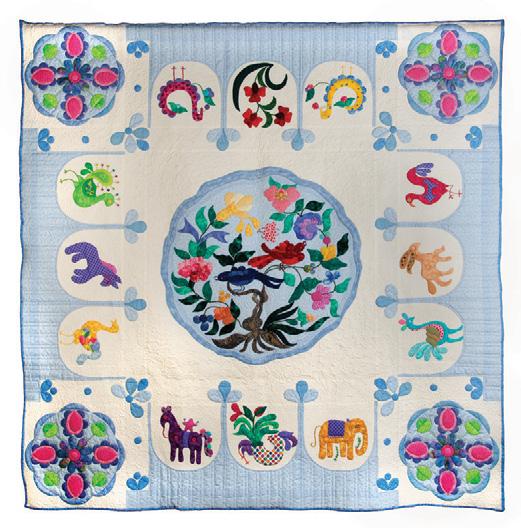
and be curious with other women about if there are barriers and if those barriers may be neurological and could be supported differently. This is a call to hear women who don’t talk with words, and see women as spirits, not bodies. This is a call for patience and when you need to: to wait.
In these moments we reach out and touch a common humanity in which we access a spark of the divine. In the moments that we humbly wait we will identify the space where the beautiful concoction of vulnerability, courage and love meet and we evolve.
Kimberly Van Ryn is a neuro-diverse human and the founder of Branching Out Support Services Inc, a yoga teacher and trauma informed practitioner. Blending her background in Child and Youth Work, energetic practices, and trauma-informed principles, she is constantly curious about the human mind, brain and heart. More about Kim, her team and their unique style of practice can be found at www.branchingoutsupportervices.ca



They were bouncing down the street, a small pack of high school-aged young men, taking up the whole sidewalk, jostling each other good-naturedly.
I was walking behind them. It was lunchtime, I was on the way to Subway. I could see they were being a little aggressive, asking passersby questions. I couldn’t hear what they were saying, but their questions had an edgy vibe. Were they harassing people?
Coincidentally, we all turned into the same Subway. Suddenly I was right behind them.
One of them turned, saw me—middle-aged guy in business attire—and decided I would be their next target.
“Do you know Andrew Tate?” he asked. His buddies turned to watch how I would respond.

Andrew Tate—I hesitate to even mention his name and give him profile—is, as the New York Times describes him, “a social media influencer famed for his misogynistic comments.” A former kickboxer, he has gained a following of millions on social media “with videos glorifying wealth and a particularly virulent brand of male chauvinism.” He has been barred from most social media sites and was recently arrested in Romania on charges of rape and human trafficking. Had he asked me that question a few weeks earlier,
I would have said no. But my 22-year-old daughter had brought him to my attention, almost in the same way.
“Dad, do you know this guy?” she asked, then showed me one of his videos.
I was appalled. Full of rage and bluster, he was literally advocating violence against women, using force to subdue and violate.
So, back to the pack of high school boys in the Subway.
“Yes, I know of Andrew Tate,” I said.
“What do you think?” one of them asked.
I could have answered directly, given him my opinion. But instead, I turned it back on them.
“Do you have a sister? You have a mom. Do you have aunties?”
There was a pause, I could see them thinking…making, I hoped, the connection between Tate the viral influencer and the girls and women in their own lives.


At that point what had been a jaunty, performative, almost joke-y episode became real. We made steady eye contact and had a chat about what Tate really stood for (violence) and how it connects with the lived reality of being a young man growing quickly to adulthood.
I raise this story because, for me, it demonstrates the hunger that exists out there among young men for role models, for information, for guidance, for practical truths that can help them navigate the tricky shoals for our complex, confusing, noisy world of disinformation and viral media.
This hunger represents an opportunity, if not an obligation, on the part of all men, to be active role models, guides and mentors to our young male population.
They are so susceptible to the Andrew Tates of the world. So vulnerable. It breaks your heart.
As an FTP board member, and as a long-time volunteer, I’ve had the privilege of working with a lot of men in this community who care about this issue. I’ve learned so much from the stories, the experiences of women that FTP has helped, and from the amazing professionals and board members who toil in the trenches.
The brutal truth, though, is that domestic violence is not “a women’s issue.”
It’s a men’s issue.
The vast number of perpetrators of violence against women are men.
My encounter with these high school boys reinforced for me the responsibility we as men have to lead, by behaviour, by advocacy, by stepping up to counter the hateful influences our young men are subject to.
Tony Maxwell works in municipal government communications and is an FTP Board member. He also enjoys the trails around Caledon East with his dog Fiji.








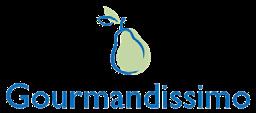













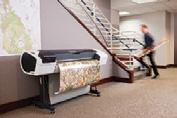









As I sit and ponder on what to write, the overwhelming thought is to capture something from the heart that has impacted me personally.
It is a little thing called self-doubt.
by Alethia O’Hara-StephensonI thought, what better way to celebrate International Women’s Day than to leave a legacy for others to be able to reflect on and learn from so that they can live full and enriching lives. As a result, I’ve penned this love letter to my daughter but in reality, it’s a love letter to all women.
As you navigate this busy and noisy world that we live in, you may find yourself feeling like you just can’t measure up. This feeling is called “self-doubt” and it is a very selflimiting belief or thought that can sneak up on you at the most inopportune times. It is a lack of confidence in your abilities and skills, and it is something that most of us encounter at some point in our lives, whether it’s starting a new school, starting a new job, or joining a new team.
For me, it is that self-limiting belief that comes with starting something new or being overly hard on myself after completing something. These feelings are both emotionally and physically taxing and can cause you to miss out on amazing opportunities, friendships and success. When I was younger, I did not know how to identify this feeling, but over the years, I have learned to identify this negative self-talk and step into my fears. Each time I stepped into my fear I was able to grow and achieve amazing results. For example, when I had
the opportunity to travel to another country to speak at a conference, I was terrified, but I stepped into my fear and came out stronger and more confident in my abilities. Was I perfect? No. However, I realized that by stepping into my fear, I could do something new and different, and I would be okay. I was able to learn and grow from this opportunity, and it also lead to many other speaking, teaching and publishing opportunities that would never have occurred had I not stepped into my fears and stopped doubting myself.
You may find yourself thinking that you aren’t good enough, or that you can’t take compliments from others. You may even be so hard on yourself that you can’t give yourself credit for a job well done. Sometimes, you may seek approval from others even when you know you did something well. These are some of the signs that you suffer from self-doubt. The good news is, once you know the signs, you can identify them and take steps to combat those limiting self-beliefs and doubt.
A tip that has helped me is positive self-talk. As silly as this may sound, it works. I had to get very comfortable giving myself positive self-talk over the years so that I could get out of my own head and achieve new heights. Positive self-talk could be as simple as waking up in the morning and saying to yourself “I am smart, I am strong and I am capable.”
I also like journalling for this purpose. I write down all the times that I had limiting self-beliefs, describing the situation and the steps I took to
get past those limiting self-beliefs. Journalling helps capture all the accomplishments that you have made, big or small from remembering to do positive self-talk, to the promotion at work or something as simple as drinking enough water for the day. Journalling is like your receipt to help prove how amazing you are.
Another great tip is to learn what your best is and not rely on everyone else to determine “your best” for you. Be comfortable with your abilities. If you need to improve a skill, seek help but know when you have done your best and give yourself credit for it. When you rely on what everyone else’s opinion of your best should be, then you will be like a leaf blowing in the wind. Learn to love yourself first and never compare yourself to others. No two people are alike. You have your own unique gifts and skills that the world needs. Your success may look very different from someone else’s success and that’s okay. You are uniquely you.

Finally, have a strong support system. It could be a network of close friends or sisters or even a professional mental health specialist or coach to help you on your journey. Talk to someone. Don’t hide behind your feelings alone.
Whatever tips or strategies you choose to use, know that you are not alone and that you can take selfsabotage and give it a swift kick out of your life with your favourite shoes.
Remember, you are enough. You are worthy and you are deserving of much love and success. You got this!
With Love,
AlethiaBodhi Wellness

Stephen Bunyan, RMT/Owner
Awakening your natural ability to heal. Manage stress, headaches, arthritis, fibromyaliga, neck/back pain through massage therapy. Specializing in deep tissue massage.


12388 Hwy 50, Bolton 905-857-0033
At RLB, we are aware that our diversity makes us stronger. As women in business, we intimately know the impact that female-tailored support can have on the often-under-served females in professional services.





Proudly supporting International Women's Day 2023
Orangeville: 519 938 8873 • Shelburne: 519 306 0073

Representing more than 1500 teachers in Dufferin and Wellington counties as they support students and families within our community.



